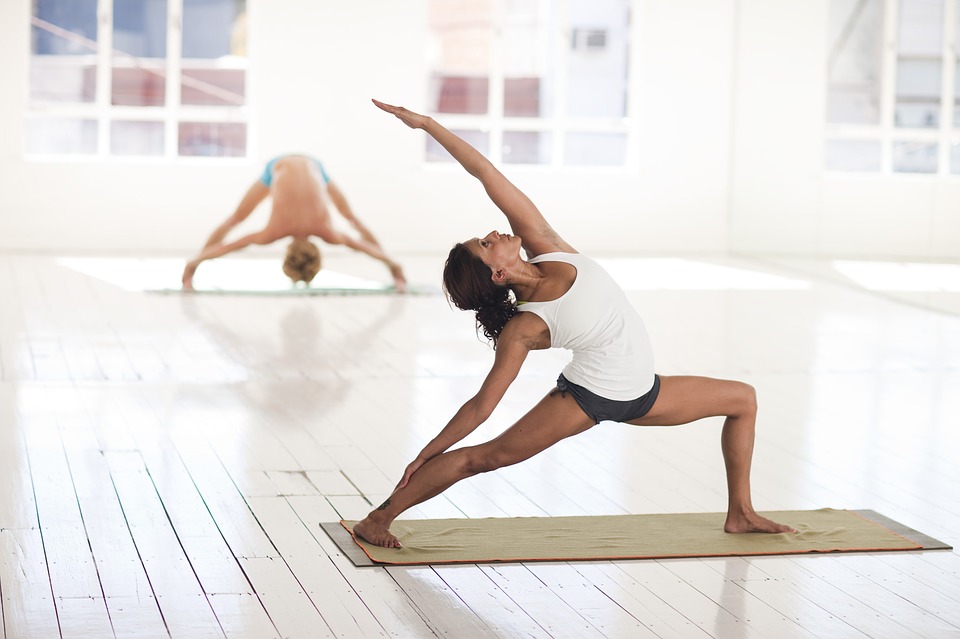According to the U.S. Department of Health and Human Services, healthy pregnant women should partake in at least 150 minutes of moderate-intensity aerobic activity per week.
Exercising and working out is, thus, recommended and even encouraged especially for women experiencing uncomplicated pregnancies because staying physically active holds numerous health benefits for pregnant women.
In fact, exercising on a regular basis may even enhance sleep and endurance, reduce back pain, help ease constipation and improve the overall fitness of the mother-to-be. What’s more, it reduces the risk of preeclampsia, gestational diabetes and cesarean too.
However, while working out during pregnancy has its benefits, precautions must be taken in order to ensure that none of the activities are hazardous to the well-being of the mother and child. Therefore, the first and the foremost thing to do is to consult your obstetrician-gynecologists before you begin exercising as they will help you chart out a suitable regimen, keeping your medical history and overall progress in view; and once you have the doctor’s approval, you can go ahead and participate in activities to help you stay fit.
There are plenty of exercises that are great for pregnant women like swimming, brisk walking, running, low-impact aerobics, core strengthening Pilates routines, indoor stationary bicycling and prenatal yoga. Alternatively, there are certain exercises that are not-so-great either. Knowing the difference between what’s good and what’s not can make a great difference, especially when you a have a baby on the way and, thus, here are a few things you might want to keep in mind:
Say no to contact sports
Any rough sport that involves a high risk of incurring abdominal trauma must be avoided at all costs. Therefore, basketball, ice hockey, soccer and other such contact sports are considered off-limits for expectant mothers.
Shun activities that put you at risk of falling down
Snow skiing, surfing, gymnastics, horseback riding, ice skating, diving and other similar activities that require balancing your weight, can put you at risk of falling. For this reason, they should be absolutely avoided since they can result in back and abdominal injuries that may prove to be fatal during pregnancies.
Refrain from scuba diving
Decompression is a threat that scuba diving exposes your fetus to and in turn, puts it at increased risk of malformation and blood vessel blockages due to air bubbles called gas embolisms. Therefore, it is advisable to avoid deep sea exploration during pregnancy.
Avoid high-impact activities
During pregnancy, the placenta produces a hormone called relaxin, which does exactly what its name suggests. It causes all joints, ligaments and muscles to loosen up and relax. Thus, keeping away from high-impact activities that consist of excessive jarring and stretching like kick boxing and vigorous dancing is recommended to evade the risk of sustaining injuries.
Don’t lie on your back for too long
Try to avoid exercises that require you to lie flat on your back for prolonged periods as the weight of the uterus will press down upon a major vein called the inferior vena cava. This can result in dizziness followed by feelings of nausea because the blood flow to the heart and uterus is reduced due to the pressure exerted on the vena cava.
Don’t remain stationary for too long
Exercises that involve standing in place for long periods of time like lifting weights or holding postures should be avoided. This is because standing motionless causes the blood to pool in the legs and feet and this may result in a drop in blood pressure for a little while and cause light-headedness. Hence, keep moving and changing postures to prevent running into any such problems.
Steer clear of exercising in hot temperatures
During pregnancy, the core body temperature is higher than it normally would be, irrespective of the weather and this means, that it will be even higher when exercising. This makes your body prone to overheating much faster as well.
Thus, pregnant women are often advised not to exercise in hot and humid weather because that can raise body temperatures to dangerous levels that cannot be efficiently regulated by the body. Being overheated may cause nausea, dizziness, shortness of breath and light headedness. Therefore, make sure to drink plenty of water to keep yourself hydrated, wear light and loose fitting clothing and always work out in a cool environment. Hot Pilates and Bikram Yoga are definitely a big no-no, in this case.
Don’t overdo it
Exercise only until you can hold a conversation without running out of breath. Never push yourself towards the point of exhaustion. While exercising, if anything hurts or gets too uncomfortable, stop immediately. It is important that you listen to your body and don’t over exert yourself. Keep in mind that the entire point of working out is to invigorate and energize yourself, not drain and exhaust your body.
Something to remember!
Alongside safe exercising, be sure to choose a diet that can meet the increased nutritional needs of your body during pregnancy. Thus, it is imperative to include items from all the food groups in your diet to reap maximum benefits from the nutrients they provide.
However, there are a few foods that deserve special attention, protein being one of them. Protein ensures proper development of the fetal tissue such as the brain and heart and, that’s why, pregnant women should consume at least 75 grams of protein per day in the form of meat, nuts, beans, etc. Protein supplements like vega proteins may also be taken, however, only do so after discussing it with your doctor or health care provider. Other than protein, food sources rich in folate, calcium, iron and vitamins must be consumed on a daily basis as well.
Moreover, make sure that all meats are thoroughly cooked before they are ingested to kill any potentially harmful bacteria that might be present in them. Smoking and alcohol consumption must also be eliminated from your diet. Avoid the intake of caffeinated beverages like coffees or sodas too. Instead, a better alternative is herbal green tea, however you should drink it only after consulting the doctor.
Pregnancy causes various physiological and anatomical changes in a woman’s body and that in itself, can be quite challenging. However, for the sake of their own and their future baby’s health, expecting moms should endeavor to maintain a healthy lifestyle that must include good nutrition and exercise side by side, throughout their pregnancy.
AUTHOR BIO
ABOUT Alycia Gordan
 Alycia Gordan is a freelance writer. She loves to read and write article related to health and lifestyle, sometime on health-tech as well. She is crazy about chocolates and you can find her on Twitter: @meetalycia
Alycia Gordan is a freelance writer. She loves to read and write article related to health and lifestyle, sometime on health-tech as well. She is crazy about chocolates and you can find her on Twitter: @meetalycia





